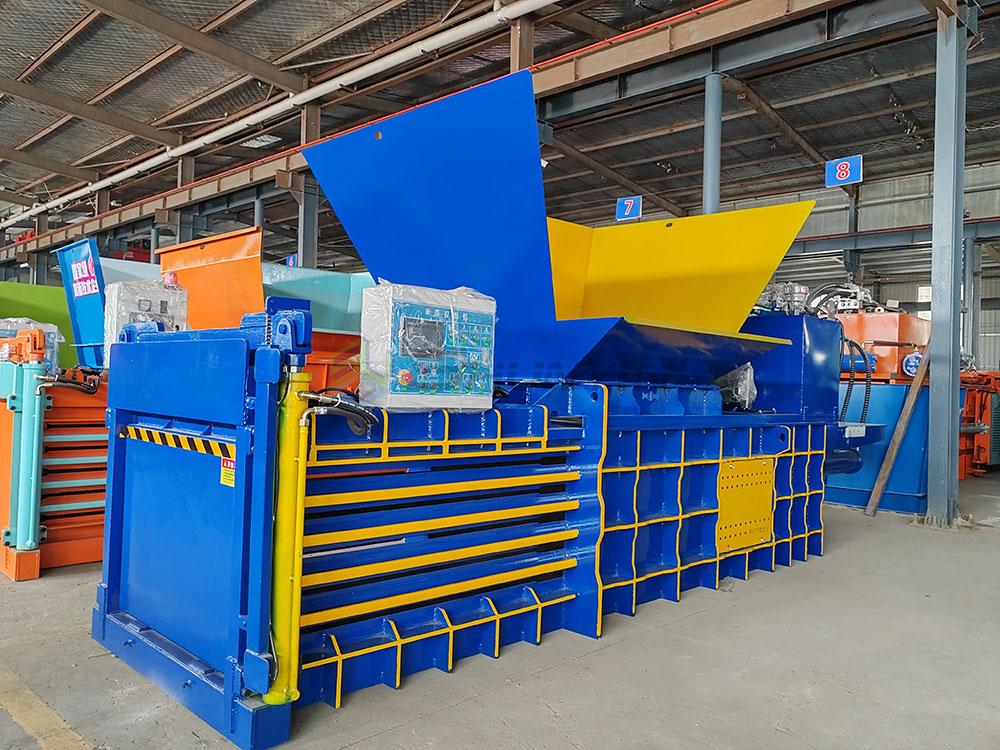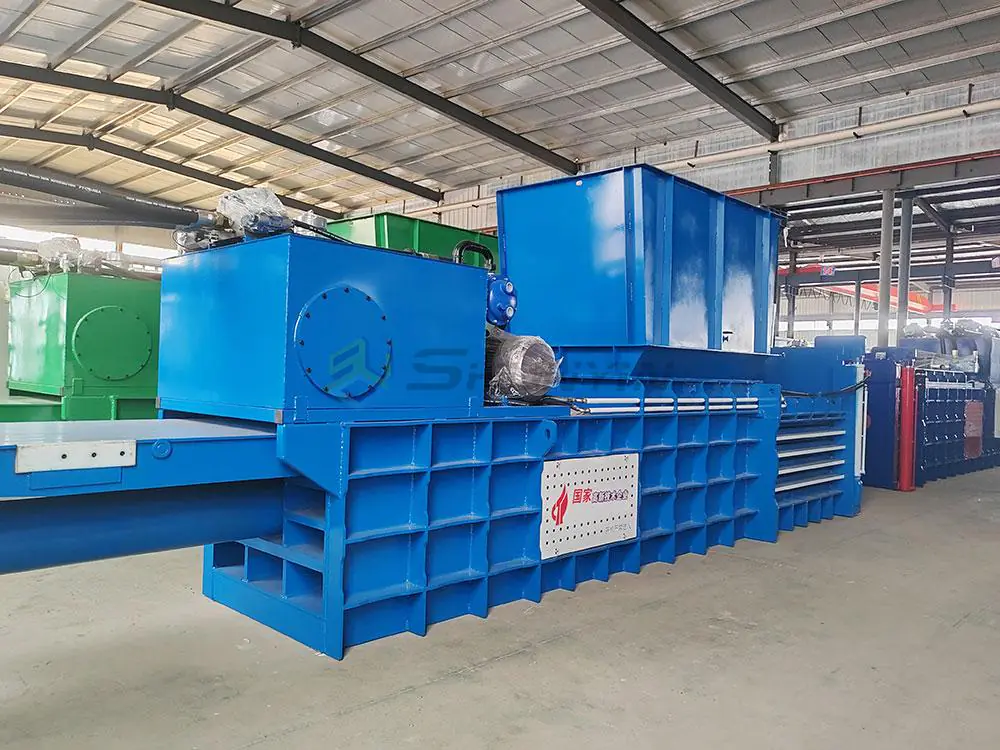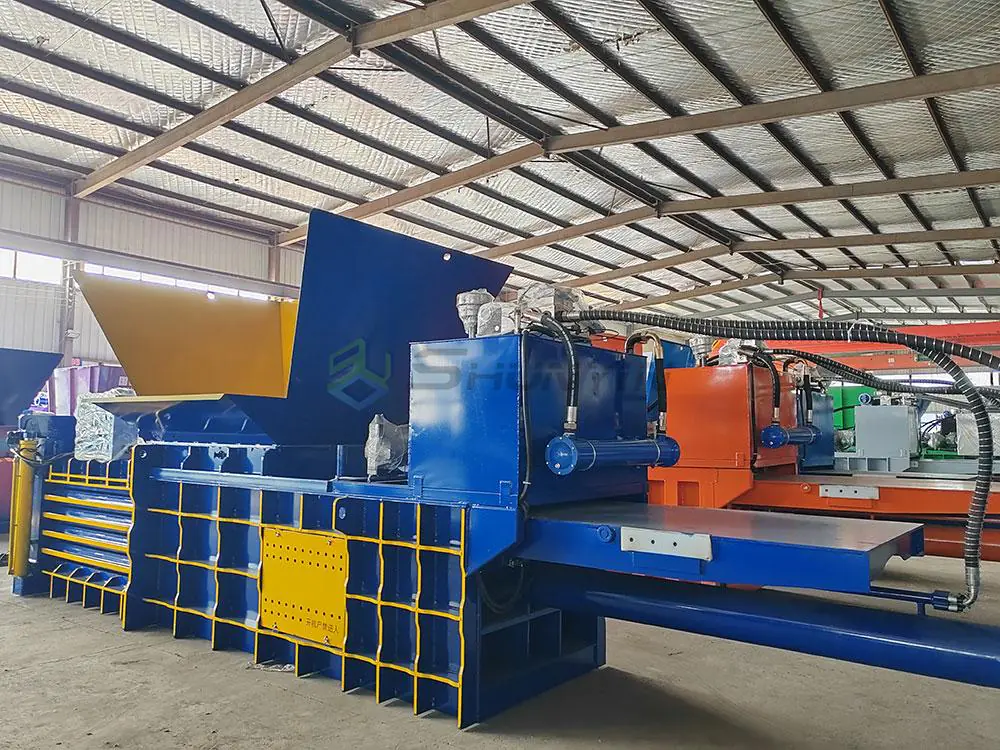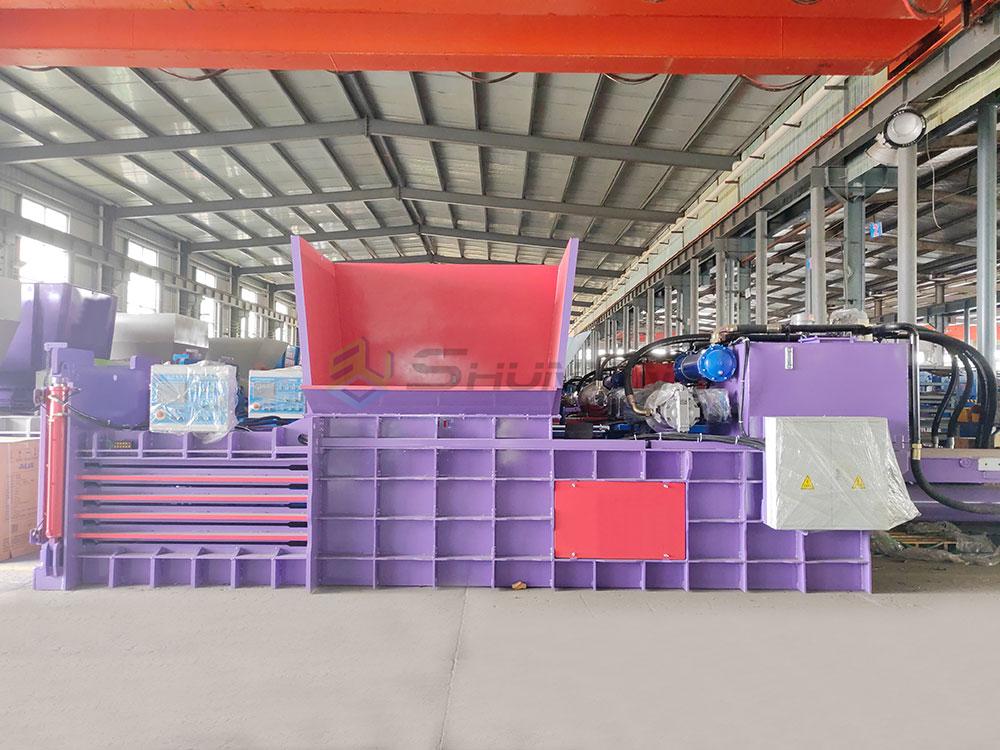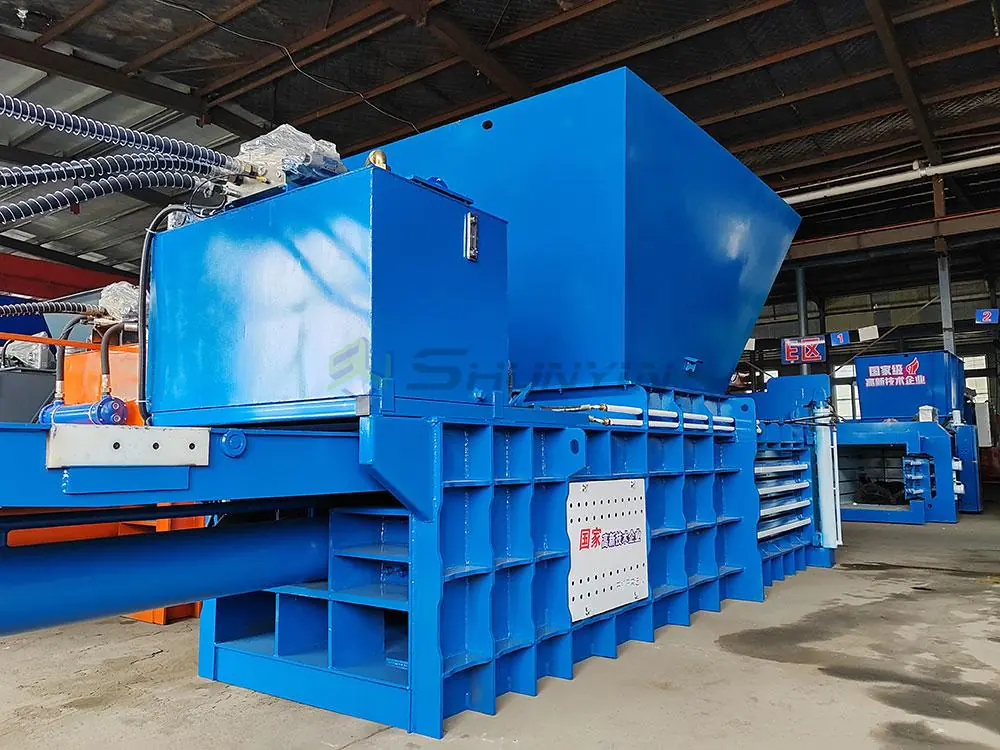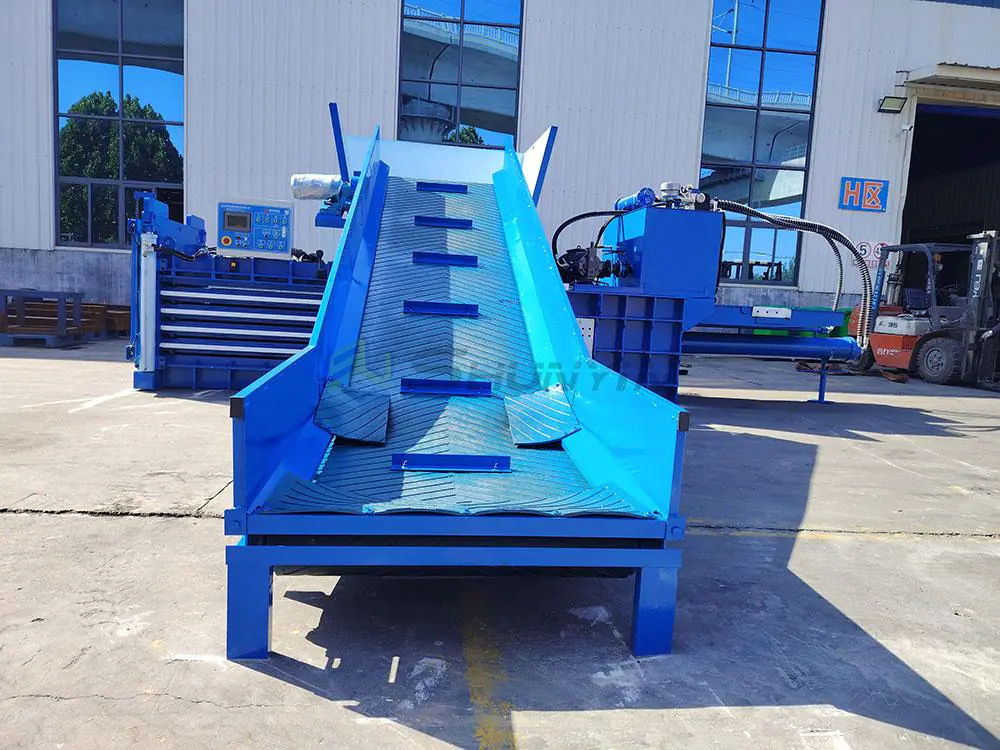Waste fees devour profits monthly. Our balers compress materials 10:1—turning costs into revenue instantly.
High-density balers use hydraulic pressures over 2800 PSI to create dense, compact bales exceeding 500kg/m³—reducing space consumption 80% while converting wasted resources into valuable commodities.

A Toronto facility earned $40K monthly resaling cardboard bales last year. Let’s explore what matters.
What Exactly Defines a True High-Density Baler?
Loose bales collapse in transit, eroding revenue. Proper density ensures profit stability during shipping.
A high-density baler uses hydraulic forces exceeding 2500 PSI to compress waste into bales weighing 500-850kg/m³—this minimizes storage space while creating sale-ready commodities that maintain shape in transport.

I prevented $220K in losses when a client’s bales failed ocean shipment—here’s how we engineer reliability.
Density Engineering Essentials
| Performance Critical Features | Component | Standard Range | High-Density (SY-HD90) | Failure Risk Avoided |
|---|---|---|---|---|
| Ram Pressure | 1800-2200 PSI | 2800 PSI sustained | Rejection drops 95% | |
| Bale Weight | 350-450kg/m³ | 540kg minimum | Resale value up 30% | |
| Steel Thickness | 10mm mild | 16mm AR450 hardened | Chamber distortion prevents | |
| Energy Efficiency | 24kW cycle | 18kW optimized | Saves $4K yearly |
Installation Verification Protocol
- Third-Party Testing
- Density certification via ISO 6786 impact tests
- Hydraulic endurance reports (100K+ cycles)
- Material Handling Impact
- Cardboard vs plastic density tolerance graphs
- Moisture control systems preventing slippage
Visit our factory assembly line—we cold-hammer every welded joint while competitors skip this step.
What Places a Baler Among the World’s Elite?
Frequent breakdowns halt production for days. True excellence ensures 99% reliable operation.
The best baler merges German hydraulic accuracy under 0.02mm tolerances, Japanese servo controls reducing cycle time to 4 seconds, and triple-layer AR500 steel chambers—all like our SY-X7 for uncompromised uptime.

Our Australian client ran 2 million cycles with two maintenance stops—compare these superior benchmarks.
Global Excellence Metrics
| Performance Factor | Industry Average | SY-X7 World Class | Profit Impact |
|---|---|---|---|
| Daily Capacity | 6,000kg | 15,000kg sustained | 60K extra revenue/month |
| Durability | 5-year lifespan | 10+ years certified | Avoid $80K replacements |
| Error Rate | 18/hour alarms | Sensor-corrected errors | Zero downtime production |
Innovation Checklist
- Hydraulic Intelligence
- Real-time oil purity monitors blocking contamination
- Self-calibrating pressure valves during load shifts
- Energy Recapture Systems
40% kinetic energy reuse per cycle → $11K annual savings
Demand factory tours—we produce 100% components in-house unlike brokers selling rebranded units.
How Does Density Elevate Baler Economics?
Low-density bales sell at huge discounts. Premium compaction secures top resale market prices.
Round baler densities typically hit 210kg/m³ for agricultural materials, but industrial cardboard balers achieve 550kg/m³—this triples resale value per cubic meter while cutting haulage fees 65%.

When a Japanese dealer upgraded, resale profits jumped 78%. Consider these critical comparisons.
Density vs Returns Analysis
| Material Type | Round Baler Density | Industrial Density (SY-HD) | Value Difference /Ton |
|---|---|---|---|
| Cotton Waste | 150kg/m³ | Not optimized | $40 lower |
| Corrugated Cardboard | Not applicable | 550kg/m³ stable | $190 premium |
| Plastic Film | 220kg/m³ | 380kg/m³ achievable | $110 higher |
Revenue Optimization Framework
- Resale Profit Calculation
Density Gain × Local Market Rate = Profit Margin
550kg/m³ cardboard @ $160/ton → 93% margin - Logistics Savings
- Fewer shipments required
- Lower fuel costs
Check bale certifications—we include density test films with every unit to prove performance.
Why Do Premium Balers Like New Holland 1290 Cost More?
Cheap imports fail within months. True value lies in lifelong reliability and resale profits.
The New Holland Big Baler 1290 costs $145K-$165K new, but our SY-HD competes at $78K with superior 560kg/m³ density—delivering identical performance at 50% lower investment while backed by hydraulic certifications.

I helped a Brazilian farm cut costs switching to SY-HDs. Analyze these economic truths.
Total Ownership Cost Breakdown
| Investment | New Holland 1290 | SY-HD Equivalent | 10-Year Savings |
|---|---|---|---|
| Purchase Price | $152K average | $78K precision-engineered | $74K upfront |
| Maintenance/Year | $9,200 | $3,500 | $57K total |
| Energy Use/Ton | $28 | $19 | $120K volume-based |
Hidden Value Drivers
- Resale Profit Premium
Our density yields $50/ton more than budget competitors - Certification Benefits
ISO-compliant units access EU markets → Premium contract eligibility
Request component certification—we submit every hydraulic valve for individual testing.
Conclusion
High-density balers maximize profits through superior engineering—schedule your customized demo.
Receive third-party performance certification


